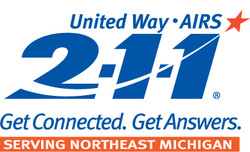What is Social & Emotional Development
Social and emotional development is a young child's growing ability to:
1. Form close relationships with other people, especially parents and other familiar caregivers (social skills). For example, depending on his age, the child:
•Enjoys interacting with others
•Trusts others to protect him
•Seeks and responds to attention from others
•Makes and keeps friends
•Shows kindness towards others
2. Express and manage emotions (emotional skills). For example, depending on her age, the child:
•Shows many emotions (smiles when happy, cries when sad, says how she feels, etc.)
•Turns to parent or other caregiver when scared or unsure
•Calms down when upset without hurting self or others
•Works through conflicts with others
3. Explore new environments. For example, depending on his age, the child:
•Actively explores people, places and things around him
•Takes on challenges
•Is able to stick with a task
1. Form close relationships with other people, especially parents and other familiar caregivers (social skills). For example, depending on his age, the child:
•Enjoys interacting with others
•Trusts others to protect him
•Seeks and responds to attention from others
•Makes and keeps friends
•Shows kindness towards others
2. Express and manage emotions (emotional skills). For example, depending on her age, the child:
•Shows many emotions (smiles when happy, cries when sad, says how she feels, etc.)
•Turns to parent or other caregiver when scared or unsure
•Calms down when upset without hurting self or others
•Works through conflicts with others
3. Explore new environments. For example, depending on his age, the child:
•Actively explores people, places and things around him
•Takes on challenges
•Is able to stick with a task

2-1-1 Northeast Michigan is your free, single connection to the hundreds of health and human services available in your community. You get one-call convenience and advice from a trained specialist who directs you to the resources that will serve you best during your time of need. Please dial 1-888-636-4211 toll free to access 2-1-1 or visit www.211nemichigan.org to search the website.
If you are an organization and would like to be added to the 2-1-1 database, please click here for instructions.
If you are an organization and would like to be added to the 2-1-1 database, please click here for instructions.

Do you have a child between the ages of 11 and 14 years old that would like to become a Red Cross certified babysitter?
Scheurer Hospital is offering a Babysitter training class on November 15, 8:00-3:00 in the Wilson Educational Center at Scheurer Hospital. To register go to www.scheurer.org.
Huron Medical Center will be offering this class again in 2015, check back for more information.
Scheurer Hospital is offering a Babysitter training class on November 15, 8:00-3:00 in the Wilson Educational Center at Scheurer Hospital. To register go to www.scheurer.org.
Huron Medical Center will be offering this class again in 2015, check back for more information.
American Red Cross Babysitter Training
What do high quality early childhood programs provide?
Experiences that prepare children for school success.
Opportunities to develop self confidence and independence.
Experiences that develop social and communication skills.
Literacy activities that prepare children for learning to read.
Math and science experiences to develop critical thinking skills.
Opportunities to develop self confidence and independence.
Experiences that develop social and communication skills.
Literacy activities that prepare children for learning to read.
Math and science experiences to develop critical thinking skills.
Our vision is all children healthy, safe, and ready to succeed in school and in life!
The Huron County Great Start Collaborative (GSC) is a partnership of parents, community leaders and other concerned citizens who work together to ensure that every child in Huron County reaches her or his potential and enters Kindergarten safe, healthy, prepared for learning, and eager to succeed in school and in life.
In 2009, the GSC conducted a county-wide assessment of early childhood services and supports and completed a strategic planning process. Through this work, the Huron County GSC Action Agenda was developed which in turn became the guiding document of the great start work in Huron County. The GSC is committed to on-going data, assets and needs analysis and revising their work plan based on findings. This group believes that by working together they can increase coordination, accountability, service delivery, and quality amongst programs, reduce duplication, and make the most of every dollar spent in early childhood. Why is investing in early childhood so important?
Each year too many Michigan children - as many as one in three, according to a recent survey - enter kindergarten not ready to learn. Some have previously unidentified health problems. Some have social or emotional problems. Some have developmental or learning problems. For these children, not being ready for school becomes a life-long sentence of poor academic achievement, diminished expectations and limited opportunity. Thankfully, the negative impact of the majority of these health, developmental and learning difficulties can be minimized or even eliminated with early identification and intervention.
While state programs exist to address health, social-emotional, developmental and learning concerns of young children and their parents - local availability, access, capacity and quality varies tremendously. Each state agency approaches financing, policy development, program development and accountability differently. Past efforts to coordinate state government early childhood programs and build partnerships with the private sector have been difficult to sustain and have achieved limited success.
The general public is becoming increasingly aware of the unprecedented growth and development that occurs during the first five years of life, and the importance of those years to future school success, but public will to support a tax increase, for example, to increase early childhood investment, remains untested. Michigan has been fortunate over the past several years to have a cadre of state leaders, including the business and foundation communities, at the table with an unwavering determination to improve the school readiness of our youngest citizens. With the enormous economic challenges facing our state, they are determined to keep our state's youngest learners at the forefront of Michigan's priorities.
Children who start behind, stay behind. Children who are held back in school are more likely to drop out long-term. Children who dropout are at significant risk of becoming victims of, or instigators of, criminal behavior. Chronic physical and mental health issues that are left untreated often result in higher health care and/or special education costs. The research is clear: Getting kids off to a great start is just common sense. It is both the right thing to do and the smart thing to do.
Click here to view "The Time Is Now" video.
In 2009, the GSC conducted a county-wide assessment of early childhood services and supports and completed a strategic planning process. Through this work, the Huron County GSC Action Agenda was developed which in turn became the guiding document of the great start work in Huron County. The GSC is committed to on-going data, assets and needs analysis and revising their work plan based on findings. This group believes that by working together they can increase coordination, accountability, service delivery, and quality amongst programs, reduce duplication, and make the most of every dollar spent in early childhood. Why is investing in early childhood so important?
Each year too many Michigan children - as many as one in three, according to a recent survey - enter kindergarten not ready to learn. Some have previously unidentified health problems. Some have social or emotional problems. Some have developmental or learning problems. For these children, not being ready for school becomes a life-long sentence of poor academic achievement, diminished expectations and limited opportunity. Thankfully, the negative impact of the majority of these health, developmental and learning difficulties can be minimized or even eliminated with early identification and intervention.
While state programs exist to address health, social-emotional, developmental and learning concerns of young children and their parents - local availability, access, capacity and quality varies tremendously. Each state agency approaches financing, policy development, program development and accountability differently. Past efforts to coordinate state government early childhood programs and build partnerships with the private sector have been difficult to sustain and have achieved limited success.
The general public is becoming increasingly aware of the unprecedented growth and development that occurs during the first five years of life, and the importance of those years to future school success, but public will to support a tax increase, for example, to increase early childhood investment, remains untested. Michigan has been fortunate over the past several years to have a cadre of state leaders, including the business and foundation communities, at the table with an unwavering determination to improve the school readiness of our youngest citizens. With the enormous economic challenges facing our state, they are determined to keep our state's youngest learners at the forefront of Michigan's priorities.
Children who start behind, stay behind. Children who are held back in school are more likely to drop out long-term. Children who dropout are at significant risk of becoming victims of, or instigators of, criminal behavior. Chronic physical and mental health issues that are left untreated often result in higher health care and/or special education costs. The research is clear: Getting kids off to a great start is just common sense. It is both the right thing to do and the smart thing to do.
Click here to view "The Time Is Now" video.
The Huron County Great Start Collaborative (GSC) is a partnership of parents, community leaders and other concerned citizens who work together to ensure that every child in Huron County reaches her or his potential and enters Kindergarten safe, healthy, prepared for learning, and eager to succeed in school and in life.
In 2009, the GSC conducted a county-wide assessment of early childhood services and supports and completed a strategic planning process. Through this work, the Huron County GSC Action Agenda was developed which in turn became the guiding document of the great start work in Huron County. The GSC is committed to on-going data, assets and needs analysis and revising their work plan based on findings. This group believes that by working together they can increase coordination, accountability, service delivery, and quality amongst programs, reduce duplication, and make the most of every dollar spent in early childhood.
In 2009, the GSC conducted a county-wide assessment of early childhood services and supports and completed a strategic planning process. Through this work, the Huron County GSC Action Agenda was developed which in turn became the guiding document of the great start work in Huron County. The GSC is committed to on-going data, assets and needs analysis and revising their work plan based on findings. This group believes that by working together they can increase coordination, accountability, service delivery, and quality amongst programs, reduce duplication, and make the most of every dollar spent in early childhood.
